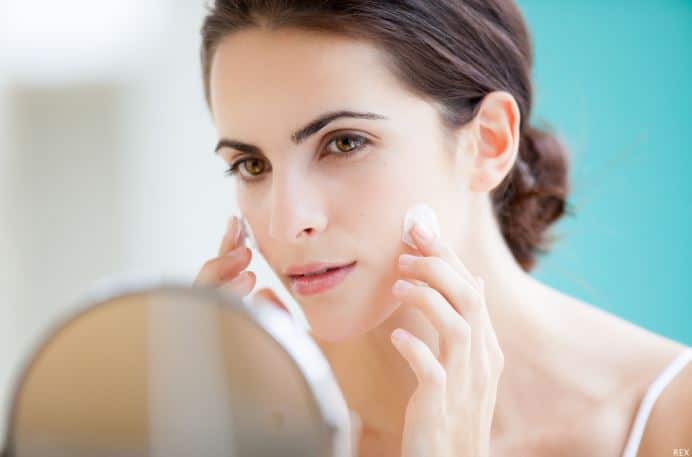8 PERSISTENT BEAUTY MYTHS BUSTED

With the rise of the internet, beauty information has become ubiquitous for women. With this has come the need for vigilance in terms of sorting out good information from the bad. In this article, we will tell you eight of the most persistent beauty myths, what gives birth to them, and how to steer away from them.
Staying beautiful – both on the inside and the outside – is a difficult enough business without having to be bombarded with information from all corners at every outlet. Some of the information, we regret to inform you, may actually be setting you back in your quest to look your absolute best. Today there are fashion magazines, beauty blogs and YouTube tutorials churning out beauty advice relentlessly, so if you’re feeling overwhelmed, relax.
It is said that sorting out the lies is your first step toward truth. Here are a few of the lies that have constantly been fed to you that you shouldn’t believe.
1. Expensive cosmetics are better than cheaper alternatives
This kind of thinking pervades across industries and products. We often think of something that is more expensive as ‘better’. There are two reasons for this: one, we think that the pricing is fair, in other words: quality comes at a price, or it is expensive for a reason, and two, a higher price increases our emotional investment in the product, and therefore we appreciate it more.
However, brands know this psychological truth and price accordingly. There is no such thing as fair pricing, so get into the habit of looking at composition of your cosmetics more thoroughly than at the price.
2. Natural ingredients are better for skin
We also have a love for anything that says ‘natural’ or ‘organic’. Given that the majority of women using cosmetics are urban-bred, brands make use of an innate yearning for nature and greenery to sell us products. In reality, there is no scientific basis that something which is ‘natural’ is somehow better for your skin than something which is ‘synthetic’. In fact, some ‘natural’ compounds harm the skin more than many artificial ones.
Add to this the fact that it’s difficult to define what is ‘natural’ and what is ‘synthetic’. It’s altogether better to refrain from getting drawn into these advertising images and train a cold eye toward ingredients as they are. Antioxidants are antioxidants, for instance, whether they claim to be ‘natural’ or ‘synthetic’.
3. Acne will disappear after a certain age
This is often true for men – and this is because men are hormonally more balanced than women after puberty has come and gone – but for women, because pregnancy and menopause loom as upheavals of body hormone levels, there is always a possibility of acne returning no matter what the age. People in their thirties, forties and fifties all get acne, and the treatment process remains the same.
So when you find another breakout on your cheek, don’t freak out and wonder why you’re being subjected to this unfair torture. Just get to work and treat it.
4. Drinking more water keeps dry skin at bay
This is not a complete lie, but the way drinking water is often extolled as the panacea for dry skin problems is to be condemned. Keeping yourself hydrated is important, and being hydrated will keep your skin at its best, but it is possible that your skin’s best is still way below the average moisture levels. If that is the case, drinking more water won’t make it better, it just makes you visit the bathroom more often. Adding moisture from the outside – with sponge baths and stuff – also won’t help much because it may disrupt the skin’s outer barrier called the intracellular matrix.
The best way to combat dry skin is to combat factors that damage the outer barrier of the skin – like sun exposure, alcohol, drying cleansers, irritant ingredients etc. Don’t go crazy on water because you think it will magically make your skin perfect. If only it were that easy!
5. Blackheads can be scrubbed away
Short answer: they cannot. Blackheads are like weeds with deep roots. They ought to be pulled out from the root. If you scrub them away using one of the many products on the market that claim to ‘eliminate blackheads’, you will only be cutting off the weed at the top, after which it will grow back. Besides, you’ve not addressed the problem, just the symptom. Instead of a scrub, try a well-formulated BHA (salicylic acid) product, which exfoliates inside the pore lining, dissolves oil, and washes away the dead skin cells. Clean up the pore and you will clean up the blackheads.
6. You should use skin care products according to your age
Skin care products are designed according to skin type, not age. Not everyone in the same age group will have the same skin type, so using your age as a guide to do your skin care shopping can be folly. For instance, just because you’ve turned fifty, you cannot assume that your skin will now automatically start drying up. Same thing goes with using anti-acne or anti-blackhead products, which a person of any age can use because your skin doesn’t change type as you age.
7. Mineral oil is bad for skin
This is more emotional than anything. Once we know that mineral oil is extracted out of crude oil, we cringe at applying some of that stuff onto our skin. This is understandable but not accurate. Though it originates from crude oil, mineral oil is as natural as any other ingredient that Mother Nature has given us. Purified mineral oil is a great ingredient for dry skin, so don’t allow the emotional side of your brain to talk you out of trying it. There are several studies that show that mineral oil can help heal and moisturise skin quite effectively.
8. A tingle is proof that the product is working
Once we apply a cream of lotion to our skin, we want tactile evidence of it working. If it tingles or cools, then we think that it’s working. Product manufacturers know this and deliberately add tingling agents that leave a cooling sensation to products. These agents have no cleaning properties and are completely non-functional. Similar agents are added to toothpastes as well, just so you know.
At worst, these agents will cause irritation and long-term damage to your skin. Usual suspects are methanol, peppermint, camphor and mint are minor irritants, which can build up over time. Go for ‘silent’ products that do the job.





